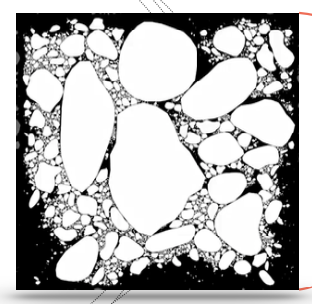|
| SASIP Newsletter March 2024 |
|
|
|
|
|
|
|
|
|
 |
|
Follow Us |
|
|
|
|
|
Science Spotlight |
FloeDyn is now open ! |
The discrete sea ice model FloeDyn developed within WP2 by SASIP participants Stéphane Labbé, Quentin Jouet, Silouane De Reboul and Thai Phan is now open and available to users. This model owes its originality to the fact that it allows simulating ice floes of shapes derived from observations and collisions between these floes in a way that avoids unrealistic interpenetrations and the associated energy dissipation, which makes it a valuable tool for thermodynamic and eventually dynamic parameterization developments within the WP2 and WP3 of SASIP.
The code and documentation can be found here. Trimestrial users and developersmeetings will be held from now on: do not hesitate to send an email to stephane.labbe@sorbonne-universite.fr if you want to join. |
 |
|
Science Updates |
neXtSIM development in close collaboration with ICCS |
We are collaborating with the Institute of Computing for Climate Science in Cambridge as part of the neXtSIM development in WP1. ICCS research software engineers (RSEs), notably Tom Meltzer, Marion Weinzierl, and Paull Richmond, are working on important technical aspects of the model, including code parallelisation and model input and output using the XIOS I/O server. This work is vital for delivering a fast and functional model. We expect these two main tasks will be completed within the next three months. |
|
News |
METOF workshop from March 12 to 14 in Bologna |
Charlotte Durand and Alberto Carassi will present collaborative work done in WP4 on hybrid modelling and emulation of sea-ice dynamics, the work on using deep learning for the service of neXtSIM, and on ensemble prediction and data assimilation for chaotic systems and sea-ice models. |
SASIP at the EGU General assembly 2024: A data-driven sea-ice model with generative deep learning |
Flavia Porro, Charlotte Durand and colleagues will present the results of an introduced stochastic multivariate surrogate model based on generative deep learning, popularized for image generation. They show that such a surrogate model outperforms many baseline methods and also deterministic surrogate models and solve thereby issues related to a loss of small-scale information. |
|
March webinar with our Guest Sebastian Reich on Particle-based algorithms for stochastic optimal control |
Still time to register ! Join us on March 19, 3 pm CET 👨🏫 |
|
Webinar with Tobias Finn from Ecole des Ponts on April 24, 3pm CET | Surrogate modelling of sea-ice models offers an opportunity to improve their computational performance, however, deterministic surrogates tend to loose small-scale information and can result in physically inconsistent trajectories. In this webinar, showcased on neXtSIM simulations, Tobias will offer insights into how generative deep learning, popularized for image generation, can solve such issues and improve the physical consistency, thereby exceeding the performance of deterministic surrogates. |
| |
|
|
|
|
|
|
|
|
|
Watch the recording of the February Webinar by Francesca Vittorioso on YouTube ! |
 |
Welcome aboard ! 👥 |
| Romain Caneill, Postdoc, National Center for Scientific Research, France | I completed my PhD in physical oceanography. I studied the interlinked role of the thermodynamics of seawater and buoyancy fluxes in shaping the upper ocean stratification. This was a quite theoretical study in which I aimed to understand the large-scale properties of the ocean based only on some key processes. | |
|
|
|
|
|
|
|
|
|
| Melanie Lauer, Postdoc, University of Auckland, New Zealand | I studied Meteorology in Germany. My focus was on Arctic Amplification, especially on the lapse-rates feedback process. After this I was a scientific assistant in Cologne for 9 months, before I started my PhD in
this research group. The focus of my PhD thesis was the influence of synoptic features (Atmospheric rivers, cyclones, fronts, marine cold air outbreaks) on Arctic precipitation. |
|
|
|
|
|
|
|
|
|
|












